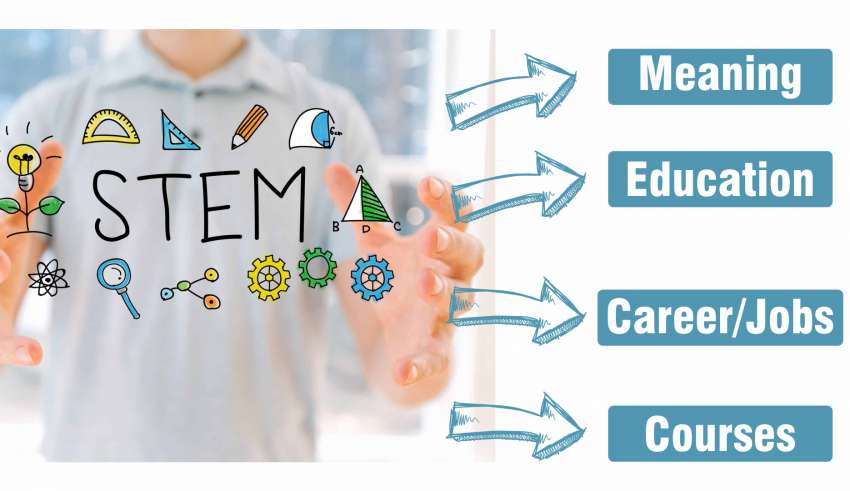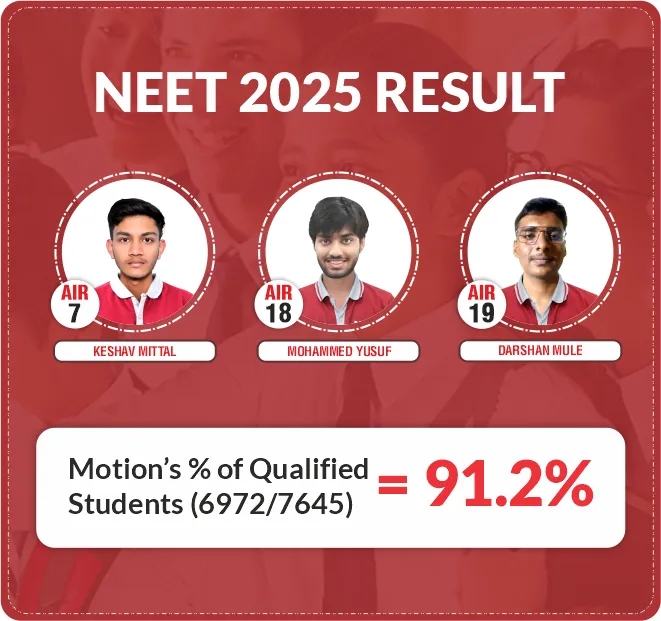
What is STEM?

You must have heard about “STEM” which stands for Science, Technology, Engineering, and Math. However, STEM is much more than grouping of subjects in a catchy acronym. Let us know what STEM actually is!
These 4 areas or subjects are the disciplines that are vital for a striving economy, a safe and technologically advanced society. Since primary education till higher studies, we are taught science and mathematics, but a focus on integrated technology and applying engineering techniques to have a greater understanding of science and math concepts.
At its core, STEM is a teaching philosophy that integrates all four disciplines together into a single, cross-disciplinary program which offers instruction in real-world (as opposed to purely academic) applications and teaching methods.
This is important to understand that getting a math or science degree doesn’t necessarily mean you completed a STEM program, even if math is a STEM subject. Without the integration of all four disciplines and the use of real-world teaching methods, you don’t get the educational benefits that make STEM degrees so valuable and careers in STEM fields so desirable.
STEM Education
STEM Education is based on the idea of educating students in four specific disciplines — science, technology, engineering and mathematics — but in an interdisciplinary and applied approach. Rather than teaching the four disciplines as separate and discrete subjects, STEM integrates them into a cohesive learning paradigm based on real-world applications.

Blended learning
STEM is unique from the traditional science and math education because of the blended learning environment and showing students how the scientific method can be applied to everyday life. It teaches students computational thinking and focuses on the real world applications of problem solving. As mentioned before, STEM education begins while students are very young:
- Elementary school — STEM education focuses on the introductory level STEM courses, as well as awareness of the STEM fields and occupations. This initial step provides standards-based structured inquiry-based and real world problem-based learning, connecting all four of the STEM subjects. The goal is to pique students’ interest into them wanting to pursue the courses, not because they have to. There is also an emphasis placed on bridging in-school and out-of-school STEM learning opportunities.
- Middle school — At this stage, the courses become more rigorous and challenging. Student awareness of STEM fields and occupations is still pursued, as well as the academic requirements of such fields. Student exploration of STEM related careers begins at this level, particularly for underrepresented populations.
- High school — The program of study focuses on the application of the subjects in a challenging and rigorous manner. Courses and pathways are now available in STEM fields and occupations, as well as preparation for post-secondary education and employment. More emphasis is placed on bridging in-school and out-of-school STEM opportunities.
STEM Education in India

At the wake of initiatives and policies such as Make in India and Skill India by the Government with the objective of taking India to a higher pedestal of academic and scientific excellence, there has been a great amount of pressure applied on the demand for STEM Education in India, in order to churn out highly skilled graduates.
One of the biggest challenges faced by the education sector of India is the science education of it’s sizeable young population. A majority of India’s population still lives in economically challenging conditions. Under such circumstances, for educational institutions to keep pace with scientific and technological innovations is a challenge itself. More importantly, including latest development in STEM learning in their curricula in a holistic manner keeping in mind both students employability as well as social development is a key challenge.
STEM Careers/Jobs

People with STEM careers typically do pretty well financially. STEM-related careers can be found in industries ranging from technology to health care to business.
Data Scientist
Data scientists are analytical experts who utilize their skills in both technology and social science to find trends and manage data. They use industry knowledge, contextual understanding, skepticism of existing assumptions – to uncover solutions to business challenges.
Systems architect
A system architect analyzes and recommends the right combination of IT components to achieve a specific business, department, team, or functional goal. They objectively analyze desired processes and outcomes and advice on the right combination of IT systems and components to achieve those goals.
Cybersecurity Expert
Cybersecurity specialists play a key role in securing information systems. By monitoring, detecting, investigating, analyzing, and responding to security events, cybersecurity specialists protect systems from cybersecurity risks, threats, and vulnerabilities.
Actuary
An actuary uses math and statistics to estimate the financial impact of uncertainty and help clients minimize risk. With a median salary of over $110,000, the profession has a strong employment outlook and projected job growth, according to the U.S. Bureau of Labor Statistics.
Mechanical Engineer
Mechanical engineers design power-producing machines, such as electric generators, internal combustion engines, and steam and gas turbines, as well as power-using machines, such as refrigeration and air-conditioning systems. Mechanical engineers design other machines inside buildings, such as elevators and escalators.
Software Engineer
Software engineers develop systems and software for businesses. These products range from business applications and games to network control systems and operating systems. A software engineer’s responsibilities may also include: Working with users to determine their software needs.
Petroleum Engineer
Petroleum engineers help find oil and gas for the country’s energy needs. Petroleum engineers design and develop methods for extracting oil and gas from deposits below the Earth’s surface.
Electrical Engineer
Electrical engineers design, develop, test and manage the manufacturing of electrical equipment, from electric motors and navigation systems to power generation equipment and the electrical components of vehicles and personal devices.












